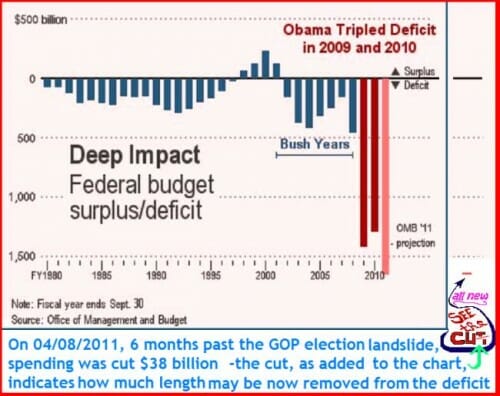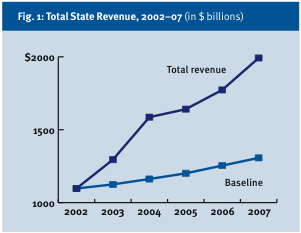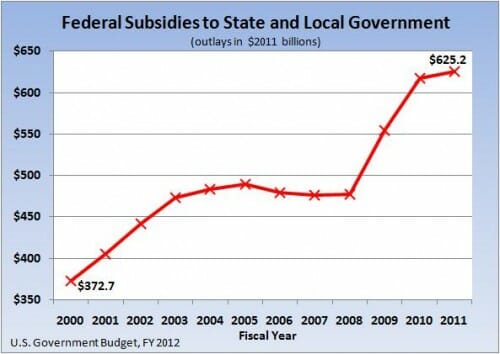Over the last few weeks I have been following the story of the city of Glendale, AZ, in order to protect a previous $200 million public investment in our hockey team, proposing to issue another $100 million bond issue to help subsidize the purchase of the hockey team out of bankruptcy.
The real furor began when the Goldwater Institute, a local libertarian-conservative think tank, said they were considering suing over the bond issue because it violates the gift clause of the Arizona Constitution, which basically bans municipal governments from providing direct subsidies or lending their credit to private institutions. The gift clause has been frequently breached in the past (politicians do love to subsidize high-profile businesses), but of late Goldwater has successfully challenged several public expenditures under the gift clause.
I won't rehash the whole argument, but I found this bit from Senator McCain interesting
He called on the Goldwater Institute, a Valley watchdog that intends to sue to block the deal, to sit down and negotiate to keep the team
The buyer Matthew Hulsizer and his staff have taken this position throughout the deal -- they have lamented that they are more than willing to "negotiate" with Goldwater, and they are frustrated Goldwater won't come to the table with them.
This claim seems bizarre to me. If Goldwater thinks the deal is un-Constitutional, what is to "negotiate?" I don't know Hulsizer or anything about him, but it strikes me that he is working from a Chicago paradigm, and is treating Goldwater as if it were a community organizer. In Chicago, community organizers try to use third parties to protest various deals, like the opening of a Wal-Mart or a new bank. These third-parties are nominally protesting on ideological grounds, but in fact they are merely trying to throw a spanner in the works in order to get a pay off from the deal makers, almost like a protection racket. The payoff might be money or some concession for the group (e.g. guarantee of X% jobs for this group in project, $X in loans earmarked for group, etc).
Everything I have seen tells me Hulsizer is approaching Goldwater in this paradigm. Even going out and rounding up the most prominent politician in the state (McCain) to put pressure on Goldwater is part of this same Chicago paradigm.
Here by the way is what Hulsizer is apparently offering
As one part of the deal, Glendale would sell bonds to pay Hulsizer $100 million, which the Chicago investor would use to purchase the team for $210 million from the National Hockey League.
Hulsizer said he notified Goldwater he would guarantee the team will pay Glendale at least $100 million during its lease on the city's Jobing.com Arena through $75 million in team rent and fees and by covering $25 million in team losses that the city promised to pay the NHL this season, which is included in the hockey team's purchase price.
"We need to move forward now," he said. "I expect that Goldwater and other people who have come out against this deal will hopefully recognize the benefits of it and will now use all of that energy and tenacity and aggressiveness to go out and help us sell these bonds and make hockey work in the desert forever."
Hulsizer said Goldwater had not yet responded to him.
By the way, I hesitate to trust the Arizona Republic to report such deal terms correctly, but if what is reported above is correct, the offer appears to be non-sense
- What kind of guarantee is he offering? Is it a guarantee by the corporate vehicle buying the team, because if it is, this is worthless. The last team ownership group promised to pay the lease for 30 years -- what does that mean once they went bankrupt? I am sure Borders Books promised to pay a lot of real estate owners money for leases, and many of them are going to end up empty-handed in the bankruptcy. If this is a personal guarantee, that is a nice step forward, though not enough because....
- The $75 million in rent is largely irrelevant to the new bond issue -- these rents support the old $200 million bond issue. What they are saying is "issue a new $100 million bond issue for us and we will guarantee you can make 40% of the payments for the old bond issue." So? When Balsillie wanted to move the team, he didn't ask for an additional bond issue and agreed to pay off $50 million of the old one as an exit fee.
- At the end of the day, if the $100 million is not a subsidy, not at risk, and fully backed by guaranteed cash flows, then Hulsizer should go out and get a $100 million private loan. Period.
Unfortunately, this might be enough to get the deal through the courts. Glendale will argue that for the $100 million, they will get $100 million paid against their existing bond issues that would not otherwise be paid if the team folds or leaves town. This may fly with the courts, unfortunately, but it still sucks for taxpayers. At the end of the day, nothing about this offer makes the $100 million bond issue any safer. If the team goes bankrupt, it is lost. That is an equity risk the city is taking with taxpayer funds, and equity risk for which we are getting no equity. See here for full discussion of the risks and problems.
Postscript: The following is pure speculation, but I think it is close to correct. The team is worth about $110 million at best (remember, it has never made money in AZ). Forbes values it at $117 million but several similar franchises have sold for under $100 million lately. The reason it is selling for $210 million is that the NHL, which bought it out of bankruptcy, guaranteed its other owners the league would not lose a penny on the team. But the team has been racking up losses, and the accumulated cost to the NHL is now $210 million. The NHL is insisting on a price that is $100 million north of where it should be. In effect, the taxpayers of Glendale are bailing out the NHL for this crazy promise to its owners.
I can just see the negotiation. Hulsizer, who by every evidence is a savvy financial guy, is not going to pay $210 million for an asset worth $110 million. Glendale has way too many chips on the table to fold now, so it rides in and says it will contribute the $100 million difference. In fact, the best evidence this is a subsidy is the difference between the purchase price and any reasonable team value. Someone has to make up the ridiculous gap between the NHL asking price and reality, and Hulsizer is too smart to do it. I have been calling this a subsidy of Hulsizer, but in fact this is really a subsidy of the NHL. The NHL has Glendale by the short hairs, because Glendale knows (from the Balsillie offer, among others) that the only way the NHL can get a $210 million price is from a buyer who wants to move the team.
This, by the way, is EXACTLY the reason I opposed the original stadium funding deal. Once they built the stadium, and then went further and lured businesses to develop around it, they were wide open to blackmail of this sort.
The problem with doubling down at this point is that the team has never made money and has no real public plan for doing so. I have talked to NHL executives and none of them see how the turnaround is possible. So how many years will it be before the new owners tire of their plaything and throw the team back into bankruptcy, so that Glendale will be in the exact same spot except $300 million, rather than $200 million, in debt.



